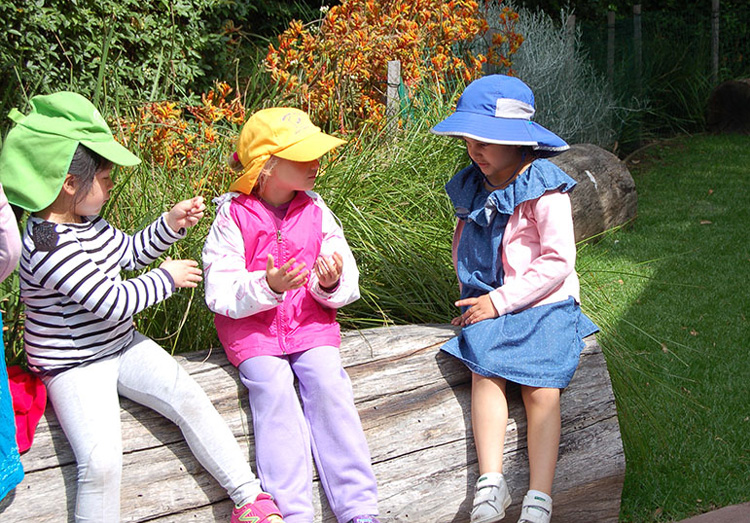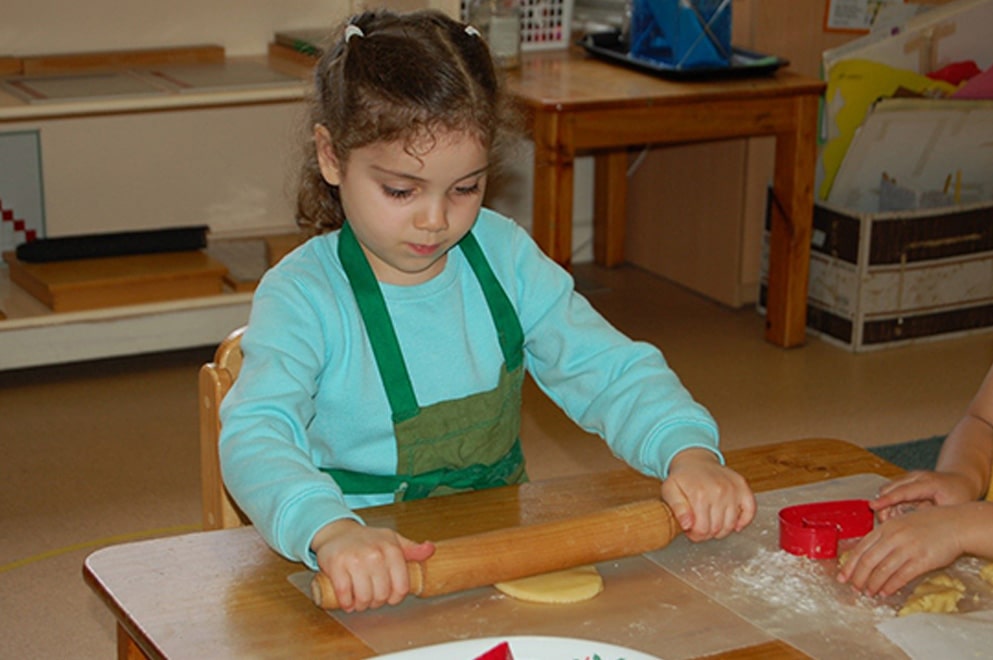
Practical Life
Montessori Practical Life activities serve as the cornerstone of a child’s education, focusing on developing essential life skills and independence. These purposeful tasks promote fine and gross motor skills, concentration, and coordination.
They instil a sense of order, responsibility, and self-confidence in young learners, fostering a strong foundation for cognitive and social success.
Sensorial
The Montessori Method recognises children as sensorial explorers. The Sensorial materials help children to develop and refine their senses of sight, hearing, smell, touch and taste, as they learn about the world in which they live.
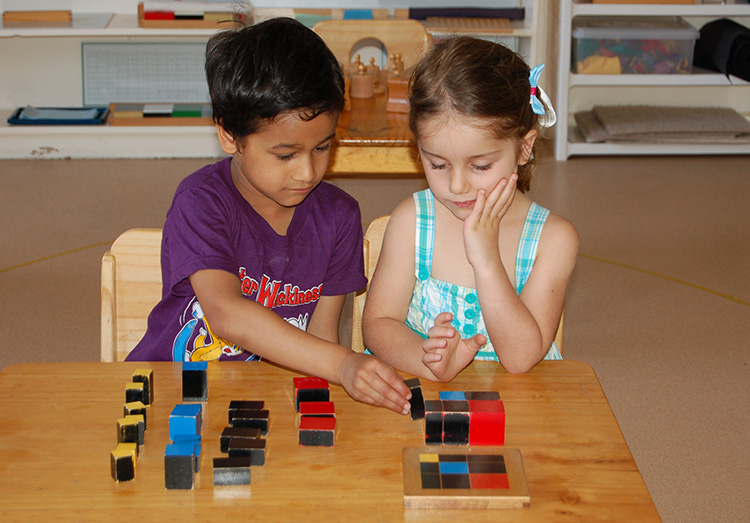
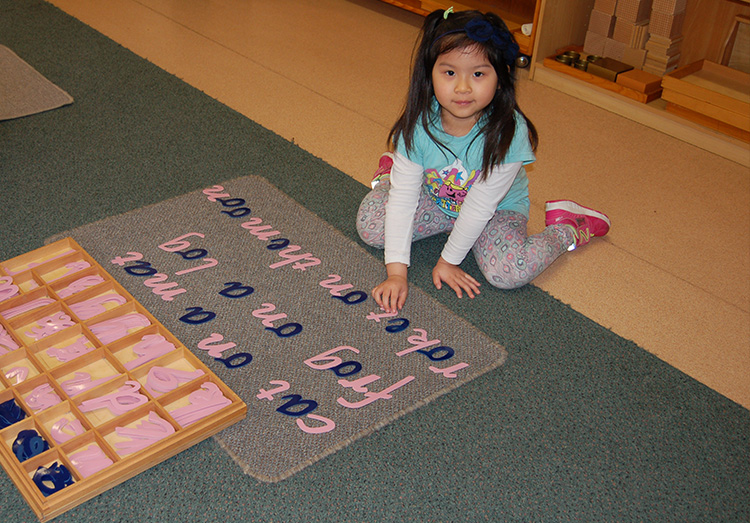
Language
The Montessori Method helps children to develop into confident communicators. The child is surrounded with opportunities for communication with the purpose of developing both receptive (listening) as well as expressive (verbal and nonverbal) skills.
Mathematics
Montessori maths materials introduce foundational numerical concepts through tactile, hands-on experiences. These materials employ concrete objects and activities to teach counting, arithmetic, and geometry, fostering a deep understanding of mathematical principles.
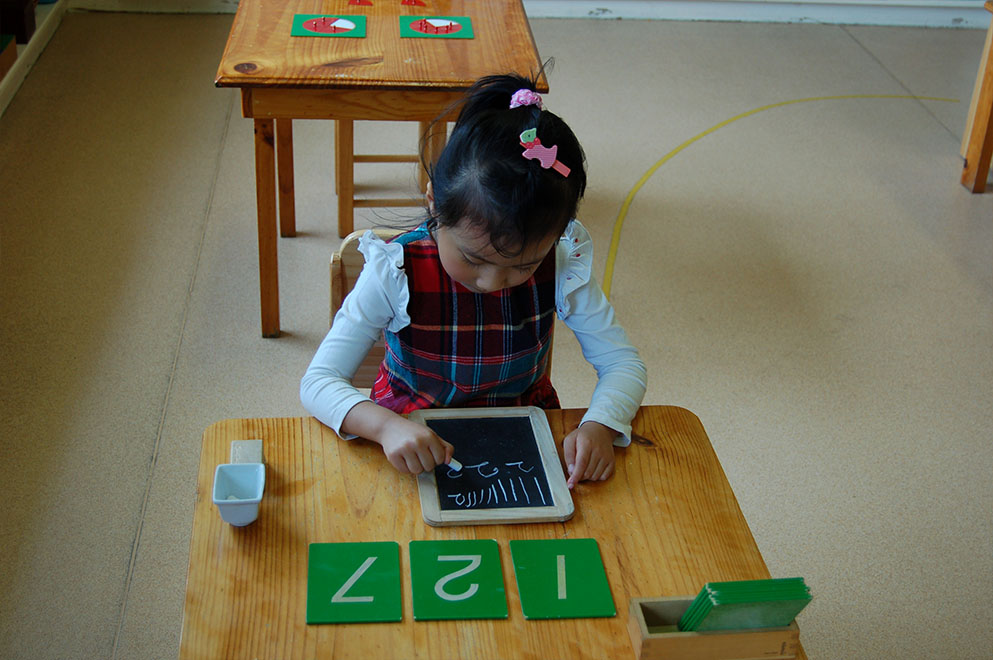
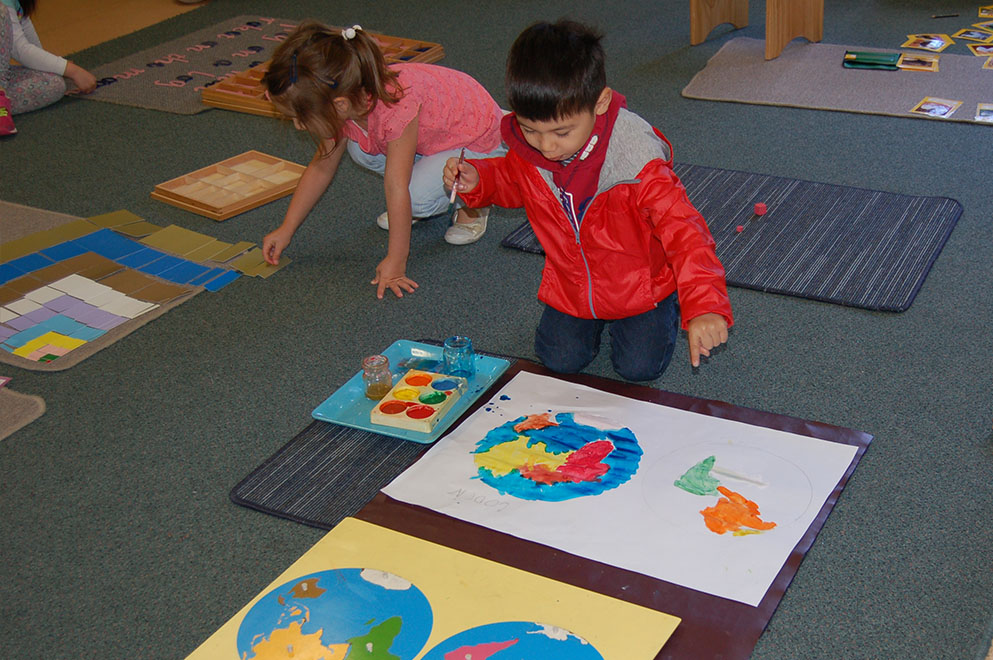
Culture
In Montessori education, the objective of the Culture curriculum is to connect children to the broader world around them. The learning aims to cultivate a child’s curiosity, respect for diversity, and a sense of their place in the world.
Social Learning
Montessori education prioritises the development of social skills, emotional intelligence, and a sense of community. This approach equips children with valuable life skills that contribute to their social and emotional well-being.
